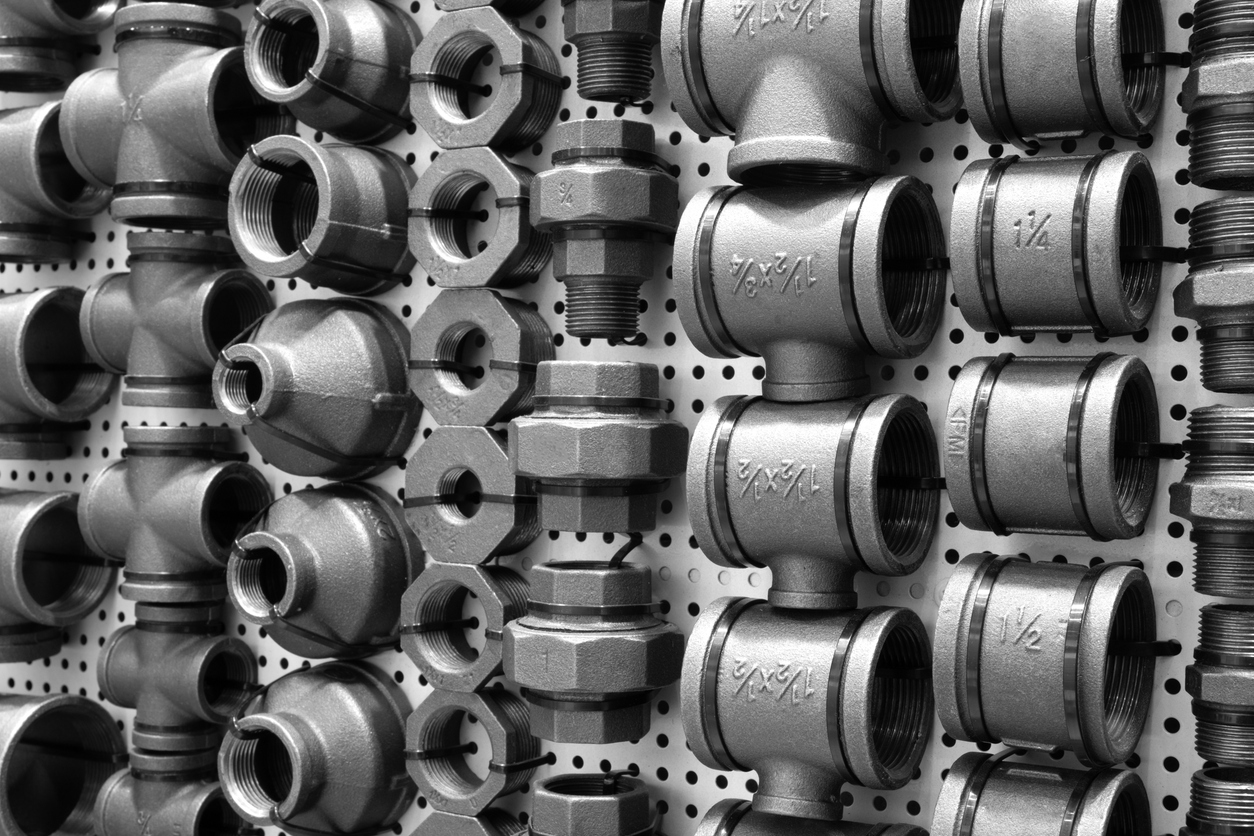Enhancing Safety Standards in Nigeria through Ultrasonic Inspection Services by Wigmore Trading
Enhancing Safety Standards in Nigeria through Ultrasonic Inspection Services by Wigmore Trading
Are you tired of compromising safety standards in your operations? Look no further! Wigmore Trading is here to revolutionize safety measures in Nigeria with our cutting-edge ultrasonic inspection services. Say goodbye to guesswork and hello to precision and accuracy. Join us as we explore how this technology is transforming the way businesses ensure safety compliance in a rapidly evolving landscape. Let’s make safety a top priority together!
Introduction to Ultrasonic Inspection Services
Introduction to Ultrasonic Inspection Services
Ultrasonic inspection services are becoming increasingly important in today’s world where safety and quality standards are paramount. This non-destructive testing method utilizes high-frequency sound waves to detect defects or irregularities in materials, structures, and equipment without causing any damage. In the oil and gas industry, ultrasonic inspection is a vital tool used for corrosion monitoring, weld quality assessment, and flaw detection.
At Wigmore Trading, we understand the importance of ensuring safety standards in industries such as oil and gas, manufacturing, transportation, and construction. That is why we offer comprehensive ultrasonic inspection services to our clients in Nigeria. Our team of highly trained professionals uses state-of-the-art equipment to provide accurate and reliable results.
How Ultrasonic Inspection Works
Ultrasonic inspection involves sending high-frequency sound waves through a material or structure using a transducer. These sound waves travel through the material until they reach a boundary between two different media or encounter any irregularity such as cracks or voids. When this happens, some of the sound waves are reflected back to the transducer while others continue to propagate through the material.
The reflected sound waves are then measured by the transducer and converted into an electrical signal that is interpreted by specialized software. The data obtained from this process can reveal information about internal structures such as thickness variations, flaws like cracks or corrosion pits, and other defects that may compromise the integrity of the material.
Benefits of Ultrasonic Inspection Services
One of the main benefits of ultrasonic inspection services is its ability to detect internal defects without causing any damage or disruption to operations. It allows for quick inspections with minimal downtime compared to traditional methods like destructive testing.
Additionally, with ultrasonic inspection services provided by Wigmore Trading, you can expect accurate results with detailed reporting that includes charts and graphs for easy interpretation. This enables our clients to make informed decisions on maintenance schedules or risk assessments.
Conclusion
Ultrasonic inspection services are an essential tool in enhancing safety standards in industries that deal with critical structures and equipment. At Wigmore Trading, we prioritize the safety and quality of our clients’ operations by providing reliable ultrasonic inspection services. With our experienced team and advanced technology, we aim to contribute to the growth and development of Nigeria’s industries while ensuring a safe working environment for all.
Importance of Safety Standards in Nigeria
In today’s fast-paced world, safety has become a top priority in every aspect of our lives. Whether it’s at home, on the road, or in the workplace, people are increasingly aware of the importance of taking precautionary measures to ensure their own safety and that of others. This is especially true in Nigeria, where there have been numerous incidents of accidents and disasters due to lack of adherence to safety standards.
The need for implementing and maintaining safety standards is crucial for any country’s development and progress. In Nigeria, this becomes even more critical as the country continues to grow economically and industrially. The implementation of proper safety measures not only protects human lives but also safeguards valuable assets such as buildings, machinery, and equipment.
One major industry where safety standards play a significant role is the oil and gas sector. Nigeria is one of Africa’s leading oil producers with a vast network of pipelines, refineries, and other infrastructure essential for its economy. However, these facilities can pose severe risks if proper inspection and maintenance are not carried out regularly.
This is where ultrasonic inspection services by Wigmore Trading come into play. These services utilize advanced technology to detect any flaws or defects in pipelines or equipment that may compromise their integrity and lead to accidents or leaks. By conducting regular inspections using ultrasound waves, potential hazards can be identified early on before they escalate into something more serious.
Apart from the oil and gas sector, other industries such as construction, manufacturing, transportation also require stringent adherence to safety standards. With an increase in urbanization and infrastructure development across Nigeria comes an increased risk for accidents due to faulty buildings or inadequate maintenance procedures.
By investing in ultrasonic inspection services from reputable companies like Wigmore Trading, businesses can ensure compliance with international safety standards such as ISO 9001:2015 which sets guidelines for quality management systems including health & safety protocols.
Furthermore, adhering to proper safety standards not only reduces risks but also enhances the overall efficiency and productivity of a business. When workers feel safe and secure in their workplace, they are more likely to perform at their best, resulting in better output and higher profitability for the company.
The importance of safety standards cannot be overstated in Nigeria. It is not only crucial for the protection of lives but also for sustainable economic growth and development. By utilizing services like ultrasonic inspection, businesses can ensure compliance with safety standards and contribute towards creating a safer environment for all.
Challenges Faced by Industries in Maintaining Safety Standards
The importance of safety standards cannot be overstated in any industry. It is crucial for the protection of workers, compliance with regulations, and overall business success. In Nigeria, there has been a growing emphasis on enhancing safety standards across various industries. However, achieving and maintaining these standards can be quite challenging for businesses.
One of the main challenges faced by industries in maintaining safety standards is the lack of awareness and education among employees. Many workers may not fully understand the importance of following safety protocols or may not have received proper training on how to do so. This can result in careless or reckless behavior that puts themselves and others at risk.
Another major challenge is the high cost associated with implementing and sustaining safety measures. For small businesses or those operating on tight budgets, it can be difficult to allocate resources towards safety equipment, training programs, and regular inspections. This can lead to cutting corners or neglecting necessary maintenance, which ultimately compromises safety standards.
In addition to financial constraints, there may also be logistical challenges that make it difficult for industries to maintain safety standards. For instance, some companies operate in remote areas where access to qualified personnel or specialized equipment is limited. This can make it challenging to conduct regular inspections and address any potential hazards before they become serious problems.
Furthermore, political instability and corruption in certain regions of Nigeria can also pose significant challenges for maintaining safety standards. In such situations, regulatory bodies may not have sufficient power or resources to enforce compliance with safety regulations effectively. This allows businesses to prioritize their profits over the well-being of their employees.
Industries face constant pressure from market competition which often prioritizes productivity over safety concerns. Companies may feel compelled to cut corners or compromise on safety measures in order to keep up with competitors who are prioritizing efficiency and cost reduction.
While there has been progress in enhancing safety standards in Nigeria through initiatives like ultrasonic inspection services offered by companies like Wigmore Trading, there are still significant challenges that need to be addressed. Businesses must prioritize educating their employees, allocating adequate resources, and collaborating with regulatory bodies to overcome these challenges and ensure the safety of their workers and the success of their operations.
Role of Ultrasonic Inspection in Enhancing Safety Standards
Ultrasonic inspection is a non-destructive testing method commonly used in various industries, including oil and gas, manufacturing, and transportation. It involves the use of high-frequency sound waves to detect flaws or defects in materials such as metals, composites, and plastics. This technology has proven to be an essential tool in enhancing safety standards in Nigeria and around the world.
The primary role of ultrasonic inspection is to identify any hidden defects or irregularities that may compromise the integrity of equipment or structures. These defects can occur due to factors such as fatigue, corrosion, or manufacturing errors. By using ultrasonic waves, technicians can detect these flaws at an early stage before they lead to catastrophic failures.
One of the significant advantages of ultrasonic inspection is its ability to penetrate through solid materials without causing damage. This makes it an ideal method for inspecting critical components such as pipelines, storage tanks, pressure vessels, and structural elements. It allows inspectors to access hard-to-reach areas and obtain accurate measurements of thickness and defects.
Moreover, ultrasonic inspection provides detailed information about the size and location of flaws detected within a material. With this data, engineers can determine the severity of a defect and make informed decisions on maintenance or repair actions required for safe operation.
In addition to detecting existing flaws, ultrasonic inspection also plays a crucial role in preventing potential hazards by identifying areas that are susceptible to future failures. By conducting regular inspections on equipment and structures using this technology, companies can proactively address any issues before they escalate into serious safety risks.
Furthermore, ultrasonic inspection can be conducted while equipment is still in operation or under load conditions – known as “in-situ” inspections. This eliminates the need for costly shutdowns or disassembly processes while ensuring continuous operation with minimal disruption.
Implementing regular ultrasonic inspections as part of a comprehensive maintenance strategy can significantly enhance safety standards across various industries in Nigeria. It not only helps prevent accidents and equipment failures but also ensures compliance with industry regulations and standards.
Ultrasonic inspection is an essential tool in enhancing safety standards in Nigeria. Its ability to detect flaws, provide detailed information, and prevent potential hazards makes it a crucial aspect of preventive maintenance programs. By investing in this technology, companies can ensure the safety of their employees, protect their assets, and maintain high operational efficiency.
Advantages of Using Wigmore Trading for Ultrasonic Inspection Services
There are numerous advantages to using Wigmore Trading for ultrasonic inspection services in Nigeria. From their advanced technology and experienced technicians to their commitment to safety and customer satisfaction, Wigmore Trading stands out as a top choice for ultrasonic inspection services.
One of the main advantages of using Wigmore Trading for ultrasonic inspection is their state-of-the-art equipment and advanced technology. They use the latest digital ultrasonic testing devices which provide accurate and reliable results. This means that potential flaws or defects in materials can be detected with precision, ensuring the highest level of safety standards.
In addition, Wigmore Trading has a team of highly trained and experienced technicians who specialize in performing ultrasonic inspections. With years of experience under their belt, they have the expertise to identify any issues or defects that may not be visible to the naked eye. This enables them to detect potential problems early on so that necessary repairs or maintenance can be carried out promptly, reducing the risk of accidents or failures.
Moreover, choosing Wigmore Trading for ultrasonic inspection services also means saving time and money. Their efficient procedures allow for quick turnaround times without compromising on quality. This minimizes downtime for businesses which ultimately leads to increased productivity and profits.
Another key advantage is that Wigmore Trading offers a comprehensive range of services tailored to meet specific industry needs. Whether it’s pipeline inspections, weld inspections, corrosion mapping or thickness measurements, they have the capabilities to cater to a wide range of industries including oil & gas, manufacturing, construction and more.
Furthermore, by utilizing Wigmore Trading’s ultrasonic inspection services, companies can enhance their safety standards significantly. Regular inspections help identify potential hazards before they become major risks or cause accidents. This not only ensures the well-being of employees but also protects valuable assets from damage or failure.
At Wigmore Trading customer satisfaction is always a top priority. Their friendly staff provides excellent customer service while maintaining strict professionalism throughout every project they undertake. They work closely with clients to understand their unique needs and provide customized solutions that meet their specific requirements.
Wigmore Trading offers numerous advantages when it comes to ultrasonic inspection services in Nigeria. With their advanced technology, experienced technicians, time and cost efficiency, comprehensive range of services and dedication to customer satisfaction, they are a trusted partner for enhancing safety standards in various industries.
Case Studies: Successful Implementation of Ultrasonic Inspection in Nigerian Industries
Ultrasonic inspection is a widely recognized and proven method for non-destructive testing (NDT) in various industries. Its ability to detect defects, cracks, corrosion, and other forms of damage in materials makes it an essential tool in ensuring safety standards are met. In Nigeria, the implementation of ultrasonic inspection has significantly contributed to enhancing safety measures in different industries.
Here are some case studies that showcase successful implementation of ultrasonic inspection in Nigerian industries:
1. Oil and Gas Industry: The oil and gas industry is the backbone of Nigeria’s economy, making it crucial to ensure safe operations. With the help of ultrasonic inspection services, companies can identify potential defects or damages in critical equipment such as pipelines, storage tanks, and pressure vessels. This allows them to take necessary preventive measures before any catastrophic failures occur.
2. Manufacturing Industry: The manufacturing sector in Nigeria has also adopted ultrasonic inspection as a standard practice for quality control and safety assurance. By using this technique on materials such as metal pipes, welding joints, and structural components during production processes, manufacturers can detect flaws that could compromise the integrity of their products.
3. Power Generation Industry: Ultrasonic inspection has played a significant role in improving safety standards in power plants across Nigeria. By conducting regular inspections on turbines, boilers, heat exchangers, and other critical components using this method, potential failures can be identified early on and addressed before they cause power outages or accidents.
4. Aviation Industry: In recent years, there have been growing concerns about aviation safety globally. In Nigeria’s aviation industry, ultrasonic inspection has been instrumental in detecting hidden damages or defects on aircraft engines’ fan blades and other vital parts that may not be visible to the naked eye.
5. Construction Industry: Ultrasonic inspection has also found its way into the construction industry as a means of ensuring building structures’ integrity and safety. By scanning concrete beams or columns with this technique during construction or renovation, potential defects such as voids, cracks, and delamination can be identified and addressed before they compromise the building’s stability.
These case studies demonstrate how the implementation of ultrasonic inspection has positively impacted safety standards in various Nigerian industries. By detecting potential issues early on and taking preventive measures, companies can avoid costly accidents, downtime, and loss of lives. It is crucial for all industries to prioritize safety by incorporating ultrasonic inspection services into their maintenance and quality control processes.
Future Outlook for Safety Standards in Nigeria with the Use of Ultrasonic Inspection
The use of ultrasonic inspection in Nigeria has significantly improved safety standards in various industries, such as oil and gas, construction, and manufacturing. This advanced technology has proven to be an effective tool in detecting flaws and defects in structures and equipment, ensuring the safety of workers and the general public.
In recent years, the Nigerian government has recognized the importance of implementing stricter safety standards to protect citizens from potential hazards. With the rapid economic growth in the country, there has been a significant increase in industrial activities. This has led to a higher demand for ultrasonic inspection services to ensure compliance with safety regulations.
One of the main advantages of using ultrasonic testing is its ability to detect internal flaws that are not visible to the naked eye. This allows for early detection of potential risks that could lead to catastrophic accidents if left undetected. By identifying these issues early on, necessary measures can be taken to prevent accidents and ensure safe operations.
Moreover, ultrasonic inspection provides accurate data about the condition of structures or equipment, allowing for better decision-making when it comes to maintenance or repair plans. This not only improves safety but also helps businesses save time and money by avoiding unexpected shutdowns due to equipment failure.
As more companies in Nigeria adopt ultrasonic inspection as part of their regular maintenance routine, we can expect an overall improvement in safety standards across different industries. This will not only benefit workers but also have a positive impact on the environment by reducing hazardous incidents.
Furthermore, with advancements in technology, we can anticipate even more sophisticated tools being developed for ultrasonic inspections. These new technologies will provide more detailed information about structural integrity while reducing testing time and increasing accuracy.
There is also growing awareness among business owners about the cost-effectiveness of investing in preventive measures rather than dealing with expensive repairs after an accident occurs. As a result, there is likely to be an increased demand for ultrasonic inspection services as companies strive towards creating safer work environments.
The future outlook for safety standards in Nigeria looks promising with the use of ultrasonic inspection. As more businesses adopt this advanced technology and the government continues to enforce stricter regulations, we can expect a significant decrease in accidents and an overall improvement in public safety. With continuous advancements in technology and increasing awareness about the benefits of preventive measures, ultrasonic inspection is set to play a crucial role in enhancing safety standards in Nigeria.
Conclusion: The Impact of Wigmore Trading and Ultrasonic Inspection on Safety
Conclusion: The Impact of Wigmore Trading and Ultrasonic Inspection on Safety
The safety and well-being of individuals and communities are of utmost importance, especially in a country like Nigeria where there have been numerous industrial accidents due to inadequate safety measures. However, with the introduction of ultrasonic inspection services by Wigmore Trading, there has been a significant improvement in safety standards across various industries.
Ultrasonic inspection is a non-destructive testing method that uses high-frequency sound waves to detect flaws or defects in materials and structures. This technique has proven to be highly effective in identifying potential hazards and preventing accidents from occurring. By partnering with Wigmore Trading for their ultrasonic inspection needs, companies can ensure the safety of their workers, equipment, and facilities.
One of the key impacts of Wigmore Trading’s ultrasonic inspection services on safety is its ability to detect hidden flaws or defects that may not be visible to the naked eye. These flaws could have serious consequences if left undetected, such as structural failures, leaks, or corrosion. With the use of advanced equipment and trained technicians, ultrasonic inspection can identify these issues early on before they escalate into major problems.
Moreover, through regular inspections using this method, companies can also prevent unexpected shutdowns or breakdowns which can result in production delays and financial losses. By detecting any potential issues beforehand, necessary repairs or replacements can be made proactively instead of reacting after an accident occurs.
Another notable impact is the increase in overall workplace safety culture brought about by Wigmore Trading’s ultrasonic inspection services. By prioritizing regular inspections and maintenance checks using this advanced technology, companies are sending a clear message that they value their employees’ well-being above all else. This encourages workers to take necessary precautions and follow proper safety protocols while carrying out their tasks.








Comments are closed.